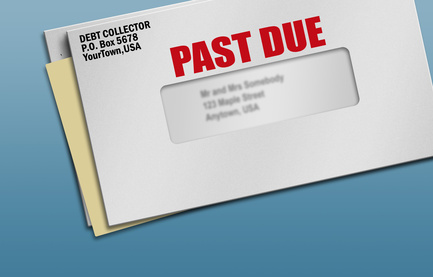Bankruptcy lawyers as well as bankruptcy alternatives are sought by millions of Americans every year. The goal of our bankruptcy alternative is to not only provide financial relief but also to relieve the everyday stress and anxiety that comes with being overwhelmed with debt. More specifically, the goal of National Debt Relief Group is to provide our clients with an affordable payment program and help them get them out of debt on the accounts they enroll as quickly as possible. A consumer who enrolls in our debt relief program may be able to settle their debts for less than they actually owe, all while preventing the harsh consequences of a bankruptcy filing. If the following statements apply to you, then you may need to seek an alternative to bankruptcy:
You don’t have any savings.
You lose sleep thinking about your debt.
You make minimum payments on your credit cards.
You get calls from debt collectors.
You’re afraid to look at your statements each month.
On the same token, you have no idea how much you owe.
You use credit cards for things you should buy with cash, such as groceries, gas, or utilities bills.
Your debt is putting an added stress on your marriage.
Your credit card debt to income is at or near 20 percent.
You have more than three major credit cards.
You lie to your spouse or other family member about your spending or hide credit card statements from family members.
After you pay your credit card bill, you increase your balance by the same amount (or more) the following month.
You’re at or near your credit limit on your credit cards.
You write a check hoping that you have enough time to make a deposit before it clears.
You take out cash advances on your credit card to pay other bills.
You’ve been denied credit.
You’ve bounced checks.
If you lost your job, you would have no ability to make your bills.
Debt Settlement as one of the Bankruptcy Alternatives
In our debt settlement program, negotiators work with creditors to lower the amount that a client owes. This may be an appropriate debt relief option for consumers who are overwhelmed with their minimum payments or who have already fallen behind on their bills. Our solution also works well for consumers who do not own a home, lack the equity or credit necessary to be able to refinance or get a second mortgage that can no longer afford their debts. In some cases, it is the fastest and least expensive way to getting out of debt besides bankruptcy, assuming that the client successfully completes the program and their accounts are settled.
Credit Counseling as a Bankruptcy Alternative
This type of bankruptcy alternative involves working with creditors to lower interest charges. The average client of a credit counseling program is able to be debt free in as little as 5 years. Credit counseling is considered a safer but more expensive option than debt settlement because you do not have to become past due in order to realize the benefits of this type of program. You pay back all of what you owe over a longer time period.
Chapter 7 Bankruptcy
In a Chapter 7 bankruptcy, a consumer is freed of their unsecured debt obligations (credit cards, medical bills, repossessions), but in exchange they are ordered to turn over certain non-exempt property to the courts to be sold and paid to the creditors. For consumers without any income or assets, this is an ideal debt relief solution. Since the credit implications can be severe, however, this option is considered a last resort for most consumers. Since National Debt Relief Group is not a law firm, one should counsel a bankruptcy attorney for advice about this option.
Chapter 13 Bankruptcy
In a Chapter 13 bankruptcy, a consumer is put on a payment plan in which all of their disposable income is turned over to the courts for up to 5 years (or until the debt is paid back in full, whichever is first). For consumers who have fallen behind on their secured debts (automobile loans, mortgage loans), this may be appropriate debt relief solution. Of course, one should seek the advice of a qualified attorney before making any such conclusions, however. For consumers with credit card debt, this option may make very little sense. After all, there are numerous debt relief options available that will not only affect your credit less negatively, but you may also pay far less as a total cost.
Liquidating your Assets as an Alternative to Bankruptcy
For consumers who own a lot of personal property, asset liquidation may be an appropriate alternative to bankruptcy. In fact, this may be exactly what happens in a Chapter 7 bankruptcy depending on your state’s exemptions and what property you own, minus the severe credit impact. In other words, if you do not qualify for a bankruptcy alternative program like debt settlement or credit counseling and you own a lot of assets, it may be foolish for you to not sell it off on your own in order to pay back the creditors rather than file bankruptcy. As always, speak with an attorney if you need legal advice about your situation.






